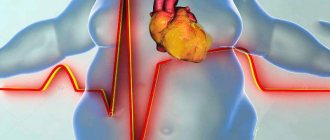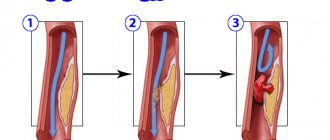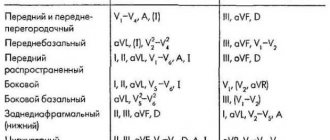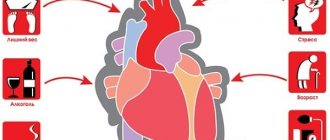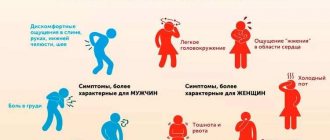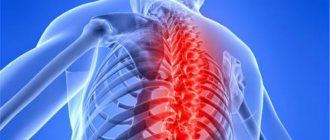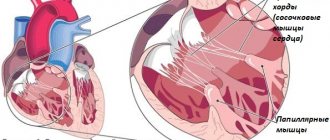Sex after a heart attack: harm or benefit
Sex improves hormonal metabolism, normalizes emotional state, and tones the cardiovascular system. The exception is patients with chronic pathology or after a heart attack. Physical activity during sexual intercourse can provoke chest pain. Due to stress and fear of a repeat attack, difficulties arise in intimate relationships. Perhaps the cardiologist will advise you to give up sex for the period of treatment, set the duration of therapy and give further recommendations.
Sex doesn't help heart attack
A recent study by German scientists from the University of Ulm showed that out of five thousand heart patients of different ages, only 0.7% had sex an hour before a heart attack, and 78% had sex more than a day after sex. Intimate intimacy does not contribute to a cardiovascular incident; people who rarely engage in sex are more likely to experience adverse coronary events.
How this was calculated, one can only assume, true, highly speculative and computerized, but during sexual intercourse a person performs work equivalent in cost to a 10-second climb up 20 steps or a 20-minute walk of one nautical mile. That is, if you do not take into account the emotional component, a person’s heart also beats actively and his blood pressure rises, as if he is working without any pleasure.
How sex affects the cardiovascular system
Regular sex improves your quality of life. Sexual intercourse is a kind of training for the body; it has a positive effect on the functioning of the heart and blood vessels, mental state, emotional and hormonal levels. During intimacy, blood circulation improves, which is a natural prevention of stroke or heart attack. However, like any stress, sex can cause deterioration in well-being in people with diseases of the cardiovascular system.
This is due to the fact that during sexual intercourse the following changes occur:
The secretion of adrenaline, norepinephrine, and serotonin increases - they activate the body and affect the emotional background.- During a hormonal surge, testosterone is intensively produced in men and oxytocin, prolactin, and progesterone in women.
- Under the influence of hormones, the strength and frequency of heart contractions increases, which can be dangerous in case of arrhythmia, tachycardia, congenital or acquired heart defects.
- As a result of physical activity, the need for oxygen increases, ventilation of the lungs increases, breathing becomes deeper and noisier.
- In case of coronary artery disease, angina pectoris and post-infarction state, lack of oxygen can provoke an attack of chest pain against the background of hypoxia, myocardial ischemia and vasospasm.
Is it possible to have sex after a heart attack?
Heart attack and sex - how do intimate relationships develop after a heart attack? This question worries many patients.
According to medical recommendations, sexual activity is permitted if:
Walking 300-500 meters or climbing two or more flights of stairs is not accompanied by shortness of breath, dizziness, weakness and palpitations;
- is not bothered by difficulty breathing at rest or when doing usual housework;
- no pathological and uncontrolled arrhythmia;
- there are no attacks of chest pain during the day or night;
- If she has an implanted pacemaker, her condition is stable and the above ailments do not bother her.
It is allowed to have sex after a heart attack if:
- 4-6 weeks or more have passed since the heart attack and the condition has returned to normal;
- After a diagnostic examination and a course of therapy, the doctor allowed dosed physical activity.
The main condition for resuming sexual activity after a heart attack is following simple rules. First of all, you should exclude poses in which you have to support the weight of your own body or a partner in your arms. High intensity loads should be avoided; during the most energy-consuming moments of intimacy, it is better to transfer the initiative. If you experience retrosternal squeezing or stabbing pain, arrhythmia or severe shortness of breath with dizziness or a feeling of loss of consciousness, you should consult a doctor.
After a heart attack, men are more likely than women to experience psychological problems. They can result in erectile dysfunction and nervousness. Emotional experiences have a worse effect on the cardiovascular system than physical activity. Stress can manifest itself as heart pain, general deterioration and, as a result, limit sexual activity. However, in the absence of medical contraindications, having sex after a heart attack is allowed.
The greatest danger is posed by severe cardiac pathology, decompensated heart defects and extensive transmural infarction with severe hemodynamic impairment and poor exercise tolerance. In other cases, with a stable condition, there are no obstacles to sexual activity. The main thing is to take into account your general well-being and the recommendations of your attending physician - a cardiologist.
When can you resume sexual activity?
Post-infarction rehabilitation, first of all, involves psychological and physical peace. Any stress on the heart can lead to complications. For this reason, doctors recommend limiting sex for one to two months.
The post-infarction course of treatment includes physical therapy exercises, which allow the body to adapt to everyday physical activity, including sex. The possibility of resuming intimate life can only be determined by a cardiologist, based on the results of the examination and examination of the patient.
However, a conditional criterion for the body’s readiness can be considered the patient’s ability to perform basic physical exercises. If climbing several flights of stairs or walking at a brisk pace does not entail a deterioration in well-being, the body can be considered prepared for the physical stress that occurs during intimacy.
Since the problem is psychological in nature, the optimal method of restoring potency would be psychotherapy. The main role in this process is given to the wife or girlfriend. A man’s self-confidence in his own abilities depends on the behavior of the other half.
Doctors do not recommend making love for 2–3 months after a heart attack. During this time, you need to try to restore your physical shape as much as possible. For this purpose, special rehabilitation programs have been developed.
After completing rehabilitation, you need to consult a doctor to make sure your health is stable.
You can return to sexual activity if you have reached a certain level of endurance for physical activity. If the patient can, without pathological signs - shortness of breath, chest pain - quickly climb 2-3 flights of stairs or is capable of fairly long walks.
To return sex after a heart attack to its previous level, an important factor is a positive psychophysical mood in both partners and the emergence of sexual desire.
It is advisable to restore intimate relationships with a regular partner, in a familiar environment. A new sexual object can lead to overstimulation and increased stress on the functioning of the body's cardiovascular system.
Physical activity after myocardial infarction should be increased gradually, so the patient should restrain his temperament, entrusting the main activity to his partner.
During the process, the partner who has suffered a heart attack must monitor his general well-being. If pain occurs in the heart area, sexual intercourse must be stopped immediately and a heart medication should be taken. If the pain continues for a long time, you should call an ambulance.
Doctors recommend adhering to a number of rules in your sexual life.
Sex is an important part of life for a person of any age. However, after a heart attack, all people have to avoid unnecessary physical activity. Many people are concerned about the question: is it possible to return to intimate life after a heart attack, and if so, when.
Let's figure out how intimacy affects heart health, whether all types of sex are safe, when you can start returning to sexual activity, the risks, and methods to prevent the development of complications.
The period of abstinence from intimate relationships after a heart attack is very individual. Doctors equate the stress on the heart during sex to walking up two flights of stairs or walking briskly. If you can do such tasks (no shortness of breath, no angina attacks), you can return to sexual activity.
conclusions
During sex, physical and emotional stress, combined with a hormonal surge, have a noticeable effect on the cardiovascular system. In the absence of cardiac pathology and preserved adaptation capabilities, intimate intimacy improves the quality of life, normalizes blood circulation, and stabilizes the psycho-emotional state. However, in case of heart failure or after a heart attack, the additional load on the heart can be detrimental. Cardiologists do not recommend having sex for 4-6 weeks after an attack, until the condition improves.
The following sources of information were used to prepare the material.
Source: cardiograf.com
When is it possible?
Returning home from the hospital, a person who has had a heart attack naturally reduces his usual load; it is recommended by at least a quarter, no more. Physical rehabilitation begins with walking, today Scandinavian walking with ski poles is fashionable for half an hour at least three times a week. But the cardiologist must be specific in the volume of initial loads and their further aggravation for the individual.
At Princeton University in the last year of the last century, a conference developed an approach to the problem of heart disease from the perspective of sexual activity, which was called the Princeton Consensus, which is regularly supplemented and revised. The 2013 consensus found that one and a half to two months after an uncomplicated heart attack, the risk of a heart attack is low, the risk is high within two weeks after the heart attack, and the rest is intermediate.
Russian recommendations for three to four weeks after a heart attack impose a medical veto on sexual life, and the patient himself may not be mentally ready, but successful recovery reports readiness with the emergence of desire. The individual risk of a possible heart attack during sex can be assessed quite objectively by a cardiologist during a stress test. No, of course, the doctor will not force you to do “God-knows-what” right in the office; he will give you equivalent physical activity and record your cardiovascular system performance indicators.
So, if during exercise there is no pain in the heart with a heart rate of up to 120-130 and an “upper” pressure of 170 mmHg, there are no changes or arrhythmias on the ECG, then sex is allowed to the patient. If not all indicators satisfy the doctor, then he should recommend prophylactic use of a certain medication before sexual intercourse. If the indicators are completely out of whack, then the patient’s heart is actively treated, and then a repeat stress test is performed to resolve the issue of his sex life.
In an uncomplicated heart attack successfully prevented by stenting, the Consensus suggests that the onset of sexual activity may be alarmingly early—“about a week after the incident.” In order not to harm yourself, you need to consult with a cardiologist, and there is no need to be shy, because everyone does “this” from time to time or would like to do it, but not everyone succeeds, not because of poor health. According to statistics, the average heart attack patient resumes sexual activity after 9-16 weeks, and this delay is completely unjustified medically.
Sexual activity after a heart attack
An acute disruption of the blood supply to the heart muscle or a heart attack is an emergency condition that requires the use of a complex of high-intensity therapeutic measures and serious, long-term rehabilitation. After suffering a heart attack once, you should take certain precautions and prevent repeated disasters for the rest of your life.
These restrictive measures should concern lifestyle, nutrition, and giving up bad habits. It is necessary to reconsider the nature and rhythm of the daily schedule and give preference to healthy food, exercise, prevention of stressful situations and proper rest, and emotional diversity. Sexual life after a heart attack should not disappear due to fear of exertion. It is necessary as a factor that meets all the requirements for preventing stress. Sexual intercourse is necessary for representatives of both sexes for:
- emotional tone;
- production of natural anti-stress and doping substances;
- blood oxygen saturation;
- strengthening repair processes in the body.
The post-infarction condition requires long-term observation by doctors and specialists. Most patients return to normal physical shape fairly quickly. Everyone's sexual temperament is different, so the restoration of normal sexual activity requires individual time frames. But to say that a heart attack and sex are incompatible concepts is not entirely correct.
There are some restrictions, following which you can have full sex, feeling cheerful, active, and without experiencing difficulties.
Having a heart attack can throw you out of your usual rut for a long time. Especially young people, both men and women.
Sex requires physical effort, so in the early rehabilitation period, when the heart muscle is healing, sexual activity must be excluded.
This measure should not be given much negative meaning, since there is no sexual desire during this period. The body is too weak to care about sex.
This condition lasts quite a long time, about a month or two. After which the active restoration of the usual way of life, including the psychological state, begins. It is known that the early post-infarction period is characterized by a rather severe physical condition, which can be aggravated by moral depression and decreased emotional tone. The return of physical strength helps to improve morale, and the emergence of sexual desire at this stage only enhances the healing and return of the patient to normal life.
Risks
Recovery is associated with positive emotions, but as for a heart attack, this period requires close cooperation, consultation with cardiologists and rehabilitation specialists. If necessary, a psychotherapist and sex therapist should be included in the list of consultants.
Problems with restoring sexual life in cardiac patients often arise on a psychological basis. Most people are afraid of physical activity, which can cause complications or deterioration in health. Some patients, especially young and active people, are depressed by the presence of a diagnosis such as a heart attack, and they fall into a depressive state. This state of affairs can lead to a significant decrease or disappearance of libido.
Risky aspects in the post-infarction period include restrictive measures in the diet, lifestyle and work patterns of patients. If before the disease a person was accustomed to eating plentifully,
especially foods high in fat, carbohydrates, seasonings, drinking alcohol, smoking, leading an intense sex life, not always orderly, then after a heart attack all these excesses will have to be thoroughly reconsidered and get rid of them. Psychological fears and problems can lead to erectile dysfunction in men and decreased desire in women. Let us repeat that most often these complications arise on psychological grounds.
After a heart attack, you can have sex no earlier than a couple of months later.
It is necessary to fully return to normal physical fitness, a healthy state of the body that will signal when you can have sex after a heart attack.
It is important that during the recovery period a loved one supports the recovering person and treats the manifestations of this disease with understanding.
Rules of sex
Before having sex after an attack, you need to take into account the restrictions that the new condition imposes. There are only a few rules that, if followed, will help you return to physical pleasure without harm. These are the rules:
- you need to start an intimate relationship after the rehabilitation period in a comfortable environment with a partner who you love and love, then both will have the patience not to rush things;
- you should not overcome fatigue or anxiety, it is better to postpone sex until next time;
- if you plan to become sexually liberated, you don’t need to overeat or drink alcohol before doing so;
- from a large number of positions, you need to choose those that do not require excessive effort - from below, on the side;
- You must take medications prescribed by your doctor on time. This issue needs to be discussed separately, since there are times when you can take a pill shortly before intimate sex, and options that need to be taken after sex so that they do not spoil potency.
Features of sexual life
Before starting sexual activity after getting rid of the consequences of a heart attack, you need to consult and be examined by your cardiologist. Cardiogram, echocardiographic study, functional assessment of the heart - the results of these tests will show how the physical state of the body corresponds to the emotional state of the patient.
Before answering the question “is it possible to have sex after a heart attack,” the doctor must talk with the patient and find out how ready he is psychologically. This is a very important point in treatment, since limitations in physical condition and a long break can make adjustments to the expected positive situation.
The patient should be advised that he needs to take certain precautions:
- keep cardiac emergency supplies on hand;
- avoid drinking alcohol;
- limit food intake;
- provide a calm environment for sex;
- use comfortable postures;
- give up energy stimulants;
- consult with your doctor about the possibility of using potency stimulants;
- do not take hot baths, especially with aromas or products that increase blood circulation.
Regarding pharmacological agents for cardiac patients, it is necessary to remember the fact that after a heart attack you must always have them with you. Let it be at least “Nitroglycerin”, but always in an accessible place.
Rules for pleasant contacts
In order not to harm your own condition, you should carefully return to sexual activity after a heart attack. The first step is not to “drive the horses”, start with preliminary caresses, which will help the body not to suddenly plunge into a state of excitement, but gradually. This is very important for the heart.
A familiar bed and a reliable partner guarantees the success of returning to sex after a heart attack
Other rules to follow:
- Do not have sex earlier than 3 hours after eating or drinking alcohol. These processes put a lot of strain on the cardiovascular system.
- It is better to avoid such pastime if you are feeling restless or anxious.
- There is no need to worry about the deterioration of erectile function. This is possible, but it is not related to the disease factor and the medications used for treatment. Often this is the result of depression and a nervous state due to lack of confidence in one’s abilities.
- After a heart attack, a woman is advised to discuss approved oral contraceptives with her gynecologist. Not all of them can be combined with heart medications.
- You need to have sex with a loving, reliable partner in whom you are confident.
- Position is key. It is better for the healthy partner to be on top or both on their sides. In this case, the load on the heart is minimal.
- The optimal time for making love is the morning, when there is unlikely to be emotional stress, bad mood and overeating.
- It is important to adhere to your medication regimen. The process of returning to a full life, including sexual life, requires close supervision by the attending physician. You can consult with him about this, especially regarding taking medications before and after.
- You need to give up sex in extreme conditions, that is, any place other than the bed is taboo.
- The room should not be cold or hot.
Recommendations
Complete restoration of all signs of a healthy life, including sex, can play a key role in the recovery of a patient after a heart attack. But don’t delude yourself that this will go away like a mild cold. It is necessary to adhere to the recommendations of specialists. This applies to limiting, or better yet completely refusing, the consumption of alcoholic beverages.
Alcohol gives a slight emotional relaxation, followed by vasospasm. This is detrimental to the heart. The simultaneous use of erection stimulants and alcohol is unacceptable, as well as the same substances together with nitroglycerin. The same instruction can be applied to rich foods. Eating a heavy meal an hour or two before sexual intercourse can significantly worsen the tone of blood vessels and the heart.
A calm, trusting attitude of partners to each other will only have a positive effect on the quality of sex and will lead to positive emotions. Stress caused by a nervous environment is strictly contraindicated under such circumstances. For a person who has suffered a heart attack, it is preferable to choose positions in which his partner will be more active. Trust and mutual understanding between two close people is also important here.
Source: mirkardio.ru
Intimate life after a heart attack
I was prompted to write this article by a conversation with a patient who spoke about an event that he considers almost fatal for himself. However, this cannot be called an event - just a phrase uttered by the wife in the marital bed, half-joke, half-reproach.
This happened six months after he suffered a heart attack. A forty-year-old man, he coped with the disease relatively quickly, undergoing treatment first in the rehabilitation department of the hospital, then in a sanatorium.
Now one thing was worrying: was male usefulness preserved? Will she be able to return to the usual rhythm of intimate life?
The first attempt at intimacy convinced me that potency had decreased. Perhaps he would have accepted it more calmly if he had known that it was not just a matter of illness. After a more or less long period of abstinence, even a completely healthy man who previously lived a regular sexual life may experience a temporary decrease in potency.
Embarrassed by his failure, he guiltily and tenderly kissed his wife. And I heard in response:
“All you have to do is kiss him on the cheek.”
He didn't try again. My mood dropped and my health worsened.
The case, I must say, is quite typical. A special sexological examination of a large group of patients suffering from coronary heart disease and who had suffered a myocardial infarction revealed in every second sexual disorder that arose immediately after the disease or some time later.
Is ischemic disease itself the cause of decreased potency? As a rule, no. Most often, it is not a matter of somatic disorders, or, in any case, not only of them. The reaction to the disease and attitude towards it play a decisive role.
Among patients with sexual disorders, the overwhelming majority were characterized by a desire to “go into illness,” an increased fear of a heart attack, and mental vulnerability.
The importance of the sexual sphere in the hierarchy of a man’s life values is also of great importance in the development of sexual disorders. These disorders more often occur in those who attach special importance to potency and focus on thoughts about its possible loss. And the more fixated on these problems, the less likely it is to succeed in restoring potency.
Sometimes a man, realizing how much his nervous condition is hindering him, begins to take tranquilizers, and in increased doses. He really stops worrying, but all other emotions fade, lethargy appears, and potency decreases even more.
Heart attack and sex
Male, 65 years old, widower.
I read somewhere that if you don't have sex, you can have a heart attack. Is it true?
Woman, 58 years old, married for 21 years.
My husband suffered a heart attack and is now afraid to have sex. I didn’t have enough before, but now I feel really bad. Tell me, how dangerous is it for a man to have sex after a heart attack (almost a year has passed)?
Maybe his fears are not in vain?
So what should I do then? After all, I’m not an old woman yet...
We discussed in previous sections that optimal sexual activity reduces the risk of heart attack. Regular sex with regular partners is an excellent prevention of cardiovascular diseases. But we assume, and fate has it. Therefore, the situation with a heart attack, if it has already occurred, should be considered together with a cardiologist.
INTERESTING FIGURES AND FACTS
With coronary heart disease, potency disorders are detected in 88% of men, with hypertension - in 43%, with atherosclerosis of the abdominal aorta - in 63%. Violations occurred more often the older the patients were and the more severe the disease was.
Patients with hypertension, coronary artery disease and angina pectoris should remember that the medications they take to maintain their cardiac well-being quite often have a detrimental effect on the quality of erection and sexual desire. As some say: we treat one thing, and cripple the other. How one manages to select daily doses of medications and which of them are suitable directly for a given patient will determine his sexual health (see pp. 213–217).
RECOMMENDATIONS OF A SEXOLOGIST
After a heart attack, in most cases you can and should have sex. Having sex after a heart attack can help you recover faster. Unfortunately, many doctors and most patients believe that it is a heart attack that serves as a contraindication for further sexual activity. In the acute period, it is definitely prohibited. During the rehabilitation period, doctors say that it is possible, but just a little, without overexerting yourself, and sometimes it’s better to wait six months. Therefore, many men, especially older ones, are forced to abstain for quite a long time, as a result of which their own sexuality sharply decreases, desire decreases, and erection suffers.
It is advisable to begin sexual activity after consultation with a cardiologist. Then, when the degree of load is identified (on a treadmill or bicycle), when you climb the steps of the stairs without shortness of breath, not to the first, but to the second floor.
Of course, prolonged, repeated sexual intercourse and the use of pretentious positions can undermine already damaged health. But petting and mutual caresses, which do not require much effort, will be the most optimal form of sexual activity at the first stage. Partners after a heart attack must clearly understand that now the woman has a greater burden than before, that the man should not chase ejaculation, that, tired, he can (and should!) refuse to continue intercourse. In bed, you should choose those positions that provide minimal physical stress to the core, and in a couple it is better to give preference to sexual activity that is familiar to both. In such a situation, the optimal positions at first will be intercourse in positions where the woman is on top, or both are on their sides.
Sexual rehabilitation of patients with myocardial infarction
Often, life after suffering a myocardial infarction can change the patient's attitude towards both his diet and his health and can often cause some stress, and even fear about the near future. However, most people after a heart attack still manage to maintain the ability to live a fairly active and completely fulfilling life, practically forgetting about past troubles.
Of course, after a heart attack has occurred, the patient is at higher risk for relapses. As a result, rethinking your attitude towards your health and your entire life can help prevent unpleasant recurrent heart attacks.
Note that, according to the Russian Heart Association, almost one million people who have once had a myocardial infarction have similar heart attacks (recurrent) literally every year.
Naturally, depending on the severity of the heart attack and the degree of damage to the heart, a person’s subsequent recovery and return to his former daily activities can proceed either relatively quickly or rather slowly.
Since after a heart attack the real consequences for the patient can be very different, you should consider the principles that are important to follow in order to in any case reduce the risks of possible complications with the heart.
To do this, it is important, firstly, to quit smoking. Remember that quitting smoking, according to doctors, is considered the most effective and reliable way to reduce the possible risks associated with a further recurrence of myocardial infarction.
Remember that the chemicals found in the smoke of conventional cigarettes can have an extremely negative and quite aggressive effect on our arteries. In addition, while smoking, the actual risks of a subsequent recurrence of a heart attack can approximately double.
Secondly, proper dietary nutrition for a patient who has had a heart attack is important. After all, following a salt-free diet with a fairly low cholesterol content will help your body significantly reduce the load on the heart, strengthening the entire cardiovascular system.
It is important to understand that a complete, balanced diet is almost the most important point during rehabilitation and subsequent life after an emergency myocardial infarction. Life following such a diet will definitely proceed with consistently delayed results, which, of course, significantly improves the quality of life as a whole.
Thirdly, after a heart attack, full physical activity and moderate exercise are extremely important. In general, normal physical activity and regular exercise are recommended for most adults who have had a heart attack.
It is important to remember that life after a myocardial infarction does not stop or freeze at all. At least minimal physical activity in this case is simply vital. Such physical activity involves simple (not high-speed) climbing stairs (well, of course, to the extent possible) as well as frequent walking at a leisurely pace.
For some people with heart problems, excessive physical activity is not recommended, but your doctor will explain this. However, such people are rather the exception to the rule. For the majority of people who have faced such serious problems as myocardial infarction, simple physical exercises are definitely useful.
Naturally, the load should be obtained gradually, preferably under the supervision of doctors to begin with. During the first weeks after the attack, you can only try regular, fairly slow and short walks almost every day. Over time, it will be possible to gradually increase the walking distance and speed of movement.
The optimal load is considered to be: when no earlier than seven weeks after your heart attack, your walking duration is half an hour.
However, if angina develops, the person will need to limit the intensity of their exercise again. It should be noted that the most severe consequences of a heart attack will be more typical exclusively for older patients. In fact, such consequences may even limit the patient’s full recovery from a heart attack.
Fourthly, after a heart attack it is extremely important to control your weight. It must be said that if a patient who has had a heart attack is overweight, then reducing it should be one of the main tasks of the recovery period, since normalizing weight reduces the likelihood of developing subsequent recurrent heart attacks.
If a particular patient finds it difficult to lose weight on their own, then it is necessary to contact an experienced nutritionist for valuable support and professional advice.
Fifthly, it is very important to constantly monitor your blood pressure. It is indeed very important to regularly check your blood pressure numbers, since excessively high levels are one of the main risk factors for the development of many heart diseases.
As you know, normal blood pressure is approximately 120/80 mmHg. Naturally, the goal of any treatment is to reduce blood pressure to the accepted norm, although in some people the working pressure may be 130/90 mmHg, which is also acceptable.
It is logical that a healthy, properly balanced diet, moderate physical activity, resulting in weight loss, and a significant restriction of salt in the diet can help reduce blood pressure.
Quite recently, doctors with the best intentions recommended after an attack to “rest and completely calm down.” Today, official medicine admits that this was not the best advice for the patient.
Some people, after a heart attack, are forced to give up their favorite job, hobby, and almost any other active activity.
As a result, people fell into deep depression and faced new relapses of the disease.
In the modern world, it is generally accepted that life after a myocardial infarction should include the continuation of one’s work activity, albeit with some restrictions. Most people can return to their previous jobs quite well after three or four months of quality rehabilitation.
And, nevertheless, it is important to understand that each person is strictly individual; for some, such a return to nervous work is completely unnecessary. And for many people, subsequently returning to a job they love may be the most important part of fully regaining their former quality of life.
Of course, only a gradual return to work is considered the optimal approach. For example, you can start with half a working day and go to work every other day. Of course, you should start only with the easiest duties. In addition, it is recommended to include several additional periods of rest if excessive fatigue is noticed.
Some patients consider the best option after a heart attack to be the so-called early retirement. At the same time, it is very important that such a decision is made by the patient himself without pressure from relatives and only for the right reasons, and not at all out of fear of a recurrence of the attack.
But there is definitely no need to worry about resuming your sexual life after a heart attack. It must be said that literally for several months (and sometimes weeks) after the attack, it will be better to avoid sex.
However, if the patient recovers very quickly. And if the patient can walk easily without experiencing discomfort, then undoubtedly returning to moderate (non-aggressive) sexual relations will definitely not cause problems.
It should be understood that erectile dysfunction (if it occurs) in men after a heart attack is largely caused by severe emotional stress or by those drugs (say, beta blockers) that are often prescribed during an attack.
The vast majority of people, after rehabilitation, can have an absolutely complete recovery. Moreover, sometimes a heart attack forces many people to completely reconsider and change their diet and entire lifestyle. And this will ultimately have a positive effect on your health and will help you return to work and a normal sex life.
- First, it is very important that all the patient’s relatives and friends do not treat the patient as a truly seriously ill person.
It is necessary that the patient’s immediate environment try not to limit the physical activity of a person who has had a heart attack. Well, of course, if such physical activity does not exceed the maximum permissible (recognized as the norm) limits for a post-infarction patient. - Secondly, it is very important to make every effort to eliminate constant fear, feelings of anxiety and excessive worries before relapses of such an attack.
Moreover, if a particular person does not have the strength to overcome his own fears on his own, he should seek qualified help from the appropriate doctors. In this case, the doctor may prescribe strictly special (usually prescription) sedative medications. - Third, full social rehabilitation is also important.
We are talking about returning to a previously familiar type of activity, which we actually already mentioned. - Fourth, the patient’s full intimate life after a heart attack is very important.
Because this is one of the most important components of the psychological viability of every person. Sometimes a doctor may still recommend to his patient the use of nitrates immediately half an hour before upcoming intimacy.
Most likely, the patient who has suffered a heart attack will subsequently require regular follow-up visits to the doctor, as well as various clinical and laboratory tests and studies.
It is important that the patient does not perceive such visits to the doctor as something tiring and strictly obligatory. It is advisable that the patient goes to the doctor, as they say “by chance” or “just in case,” knowing that he is already almost completely healthy.
Sex after a heart attack
Sex after a heart attack is one of the first questions that interests patients who have suffered a dangerous attack and are recovering. This point is being discussed quite openly today and is accompanied by different opinions. On the one hand, intimate life brings a lot of pleasant sensations, thanks to which it has a positive effect on the body and psycho-emotional state of a person. On the other hand, this is significant physical activity, and after an attack of heart disease, it is considered “undesirable.” Accordingly, such duality causes well-founded fear. But this is only for the patients themselves. Today, doctors do not see a threat of developing a second attack of the disease in sexual life.
Do doctors find dangerous influences?
It turns out that doctors do not believe that a second heart attack can develop after sex. In any case, they do not see the cause of a dangerous pathology in a natural physiological need. Both men and women need intimate intimacy almost like air, water, food and many other things necessary for a person to live a full life. On the contrary, the lack of intimacy in the family can lead to:
- depression;
- violation of internal harmony;
- misunderstandings between spouses;
- divorces (although not everyone talks about it openly).
When can I return to normal life?
Depending on the degree of myocardial damage the patient has suffered and, based on the individual characteristics of the body, we can talk about readiness to return to sexual activity after a heart attack or the need to abstain from sex for a while.
After suffering from an illness, it is worth discussing possible physical activity with your doctor.
According to most cardiologists, there is no need to give up intimate life, and after a heart attack you can and should have sex, but not immediately after the attack itself, but at least after two to three weeks or a month. After this time, it is necessary to discuss possible physiological stress with your doctor and check your body’s readiness for it.
Among the best and safest ways to determine whether the heart is ready to withstand such stress again after an attack is to conduct stress echocardiography. If everything is normal, and the doctor sees no reason for intimate restrictions, then you can return to sexual contacts. That being said, there are some rules on how to safely return to sexual activity after a heart attack, and they should be followed.
Sex in patients with cardiovascular diseases
Adjusting daily life can be difficult for heart disease patients. In particular, you have to think about previously unconcerning questions. For example, should you eat this food? Is it possible to do this activity? Will the body be able to cope with stress?
Among the many similar questions, what stands out is the burning desire to know whether heart disease, also called cardiovascular disease, will affect your sex life? In particular, many post-MI patients are interested in whether it is safe to have sex at all? It's likely safe to have sex if your cardiovascular disease is stable, according to a new scientific statement from the American Heart Association.
“Sexual activity is a serious area of life for men and women with heart disease and their partners,” said Glenn N. Levine, lead author of the statement and professor of medicine at Baylor College of Medicine in Houston.
Cardiovascular disorders, such as myocardial infarction or chest pain caused by heart disease, rarely occur or worsen during sexual activity. This type of activity usually takes a short period of time, so the risks are often minimal. But an estimated 60 to 87 percent of people living with heart failure, which can occur after a heart attack, say they have sexual problems. [1]
“Some patients are afraid to maintain sexual activity when in fact it is relatively safe for them,” said Levine, who is also director of cardiac care at Michael E. DeBakey Medical Center in Houston. “On the other hand, there are some patients for whom it may be wise to hold off on restoring their sexual life until their condition is stabilized.”
“If you have unstable cardiovascular disease or serious clinical signs, you should be treated and stabilized before sex,” notes Levine, who is also a volunteer for the American Heart Association.
Don't be shy about starting a conversation with your doctor about heart disease and your personal sex life.
If you have been diagnosed with cardiovascular disease, it is important to do the following:
- Ask your healthcare provider for a health assessment before resuming sexual activity.
- If you have previously been diagnosed with heart failure or a heart attack, performing cardiac rehabilitation and regular physical activity may reduce the risk of complications associated with sexual activity.
- If a woman who is thinking about contraception or the possibility of becoming pregnant has had to undergo an MI, she must first talk to her doctor.
- If you experience sexual dysfunction, you should consult a doctor to find out whether it may be related to cardiovascular disease or to anxiety, depression, or other factors.
- You should not skip prescribed medications that may improve your cardiovascular disease because you are concerned that they may affect your libido. Treatment of the heart should come first.
- Erectile dysfunction drugs are generally safe, although they should not be used if nitrates are being used to treat chest pain secondary to coronary artery disease. Also, you should not administer a drug for the treatment of erectile dysfunction for 24-48 hours, since much depends on the pharmacological properties of the drug used.
- For postmenopausal women with cardiovascular disease, it is generally safe to use estrogen, which is used topically or vaginally to treat painful intercourse.
The need for further research on the regulation of sexual activity is often associated with the characteristics of the course of cardiovascular pathology, especially in relation to women and the elderly.
Rules for returning to sexual activity
After suffering such a serious illness as a heart attack, returning to sexual activity should take place with precautions.
- The first intimate intimacy must be spent with a regular partner and in a familiar environment, so that nothing causes unnecessary excitement.
- Sex after myocardial infarction is prohibited in baths or saunas (visiting them is generally undesirable after such an illness), and taking hot baths beforehand is strictly not recommended. The room must be ventilated and under no circumstances hot.
- You should not drink alcohol or energy drinks.
- You need to choose only those positions in which physical activity is minimized. Lying on your side is best. It is highly undesirable to have sex in an upright position after this disease; it is also recommended to avoid hard surfaces.
- You should not eat heavily before intimacy, especially heavy and fatty foods. The break after eating should be 1.5-2 hours.
- You should also make sure that you have nitroglycerin tablets on hand.
- After illness, you should be especially careful when taking drugs that increase potency. After them, it is strictly forbidden to take nitroglycerin, which may be needed after tension during sex. The combination of these two drugs leads to a sharp decrease in blood pressure (to a critical point, which can be fatal).
Signs of unpreparedness
The process of rehabilitation after a heart attack is long and difficult. Sex after myocardial infarction is possible only if, under similar loads, there are no such manifestations:
- shortness of breath for more than 10 minutes;
- pain in the chest, jaw, abdomen, neck;
- the appearance of white, dark spots on the skin;
- Frequent, uneven heartbeat;
- cold sweat;
- nausea, vomiting;
- weakness, fainting;
- swelling and pain in the legs.
There are a number of factors that can lead to the fact that sexual life after a heart attack never recovers:
- smoking;
- stressful situations;
- alcohol in large doses;
- elevated cholesterol levels;
- excess weight;
- elevated sugar levels in diabetics.
Problems that may arise
Some of the most common consequences of the disease are: anxiety, excitement, nervousness. The rehabilitation program is built on eliminating these problems, but it is not always possible to completely overcome them; this takes time. Consequently, all these anxieties can affect the well-being and emotional state during the first intimacy after illness.
The first fear that arises in the patient's mind is the fear of a second attack. Moreover, as statistics have shown, only in 1% of cases there was a relapse due to sex after a heart attack. It is interesting that in almost all of these cases it was an extramarital affair.
Echocardiography will help determine whether the heart is ready for stress.
Taking special drugs that increase potency can become a serious problem. We must not forget that they are incompatible with the medications that the patient used during treatment and nitroglycerin, which may be needed at any time. Therefore, doctors strongly recommend that after a heart attack, sex should be a natural process, and only when there is really a desire for it.
Many patients after the disease initially experience difficulties in terms of sexual life associated with decreased libido. This should under no circumstances be a cause for panic or concern. You need to understand that many drugs that were prescribed during treatment have a depressing effect on potency, and for some time after discharge, low libido is a common occurrence. Therefore, if the first sexual intercourse fails, you just need to calm down, don’t worry and don’t get depressed. If doubts still persist, you can go for a consultation with a cardiologist, get tested and make sure there is no reason to worry.
What kind of rehabilitation after a heart attack is needed after discharge from the hospital?
If, after a heart attack, the patient’s treatment proceeds according to plan and there are no signs of concern, it is recommended that the patient be transferred for subsequent rehabilitation to a cardiac sanatorium. There, under the supervision of specialists, he will begin to engage in physical therapy and practice long walks (from 2 to 7 km every day). In a sanatorium or rehabilitation center, the patient will follow a diet and take the necessary medications.
You should not think that after 2-3 weeks the danger to life has passed. Of course, the most dangerous for a person during a heart attack are the first hours, when the probability of death is 50%. However, we should not forget that according to statistics, from 3 to 7% of patients die during the first year after a heart attack. And, as a rule, these are mostly people who were discharged from the hospital and engaged in rehabilitation.
When is it necessary to see a doctor?
Taking into account the individual characteristics of each organism, it is quite difficult to say exactly how the first sex after a heart attack will go. Therefore, in addition to mandatory compliance with all the described rules for returning to sexual activity, you should be attentive to your general condition and consult a doctor if:
- sudden dizziness;
- changes in heart rate;
- pain in the chest area, radiating to the shoulder, arm, under the shoulder blade;
- problems with color perception;
- the appearance of muscle weakness;
- shortness of breath, lack of air;
- sudden loss of consciousness.
Source: sosudiveny.ru
When can you return to intimate life?
Rules for returning to intimate life
The return to intimate life occurs gradually and not immediately after the attack. At first, the patient undergoes active treatment in a hospital, then he is shown a rehabilitation and prevention program, and only after that can he begin a normal sexual life.
The optimal period of time that should pass after an attack is 7-8 weeks. By this point, the body has almost recovered, the patient can independently go up and down the stairs without experiencing difficulties or discomfort.
